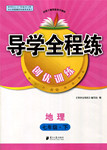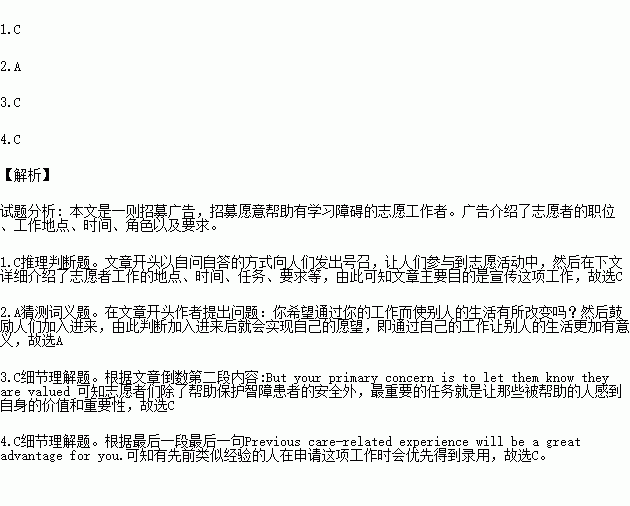题目内容
Do you want to get home from work knowing you have made a real difference in someone’s life? If yes, don’t care about sex or age! Come and join us, then you’ll make it!
Position: Volunteer Social Care Assistant (No Pay but with Free Meals)
Place: Manchester
Hours: Part Time
We are now looking for volunteers to support people with learning disabilities to live active lives! Only 4 days left. Don’t miss the chance of lending your warm hands to help others!
Role:
You will provide people with learning disabilities with all aspects of their daily lives. You will help them to develop new skills. You will help them to protect their rights and their safety. But your primary task is to let them know they are valued.
Skills and Experience Required:
You will have the right values and great listening skills. You will be honest and patient. You will have the ability to drive a car and to communicate in fluent written and spoken English since you’ll have to help those people with different learning disabilities. Previous care-related experience will be a great advantage for you.
1.The text is meant to ________.
A. leave a note B. present a document (文件)
C. carry an advertisement D. make an apology
2.What does the underlined part (you’ll make it) (Para. 1) mean?
A. You’ll make others’ lives more meaningful with this job.
B. You’ll arrive home just in time from this job.
C. You’ll earn a good salary from this job.
D. You’ll succeed in getting this job.
3.The volunteers’ main task is to help people with learning disabilities ________.
A. to get some financial(经济的) support
B. to properly protect themselves
C. to realize their own importance
D. to learn some new living skills
4.Which of the following can first be chosen as a volunteer?
A. The one who can drive a car.
B. The one who has patience to listen to others.
C. The one who has done similar work before.
D. The one who can use English to communicate.
 导学全程练创优训练系列答案
导学全程练创优训练系列答案
